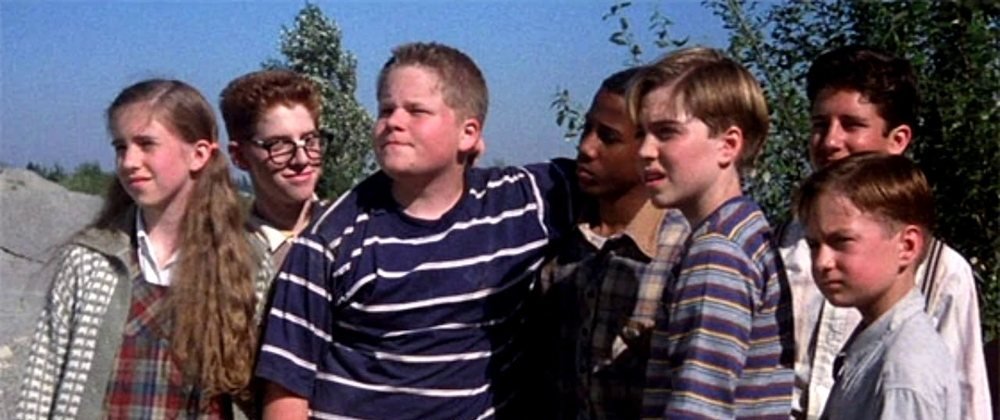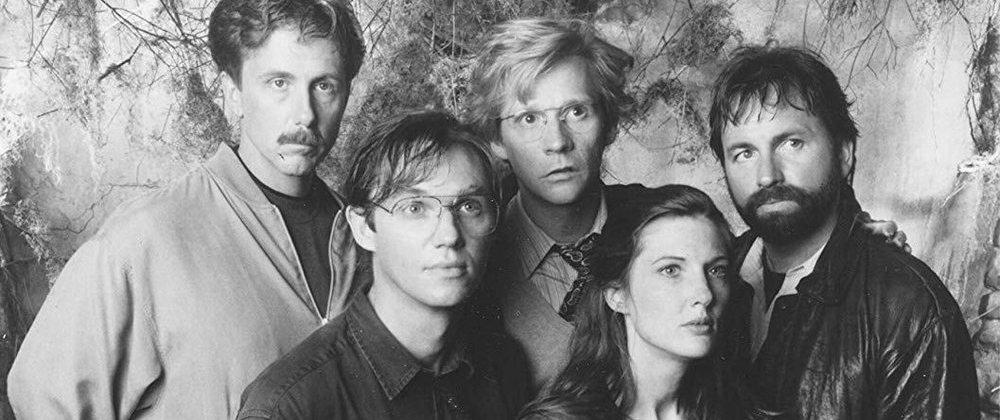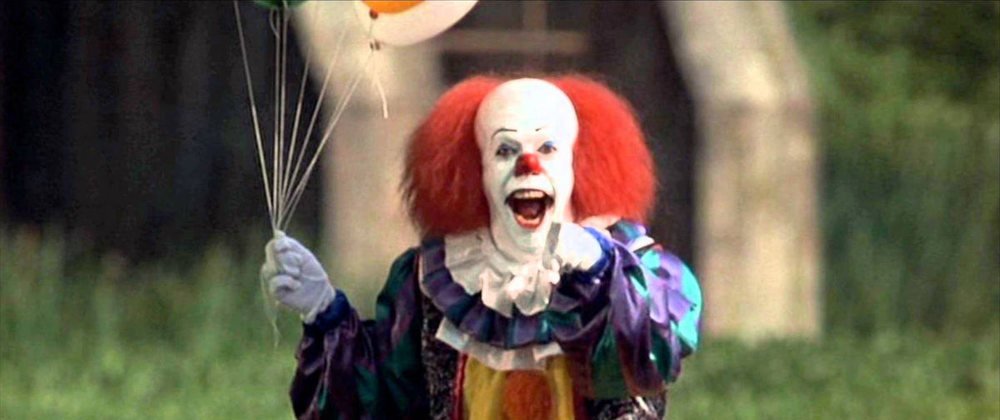IT (1990): Converting King-Size Terror For Network Needs
The relationship between Stephen King's novels andtelevision stretches as far back as 1979 with the original two-part miniseriesof Salem's Lot but said relationshipreally heated up in the '90s. The catalyst was another two-part miniseriesadapting his monolithic hit novel It.It resulted in big ratings for ABC, who would go on to produce severalKing-adaptation miniseries throughout the rest of the decade like The Stand and the King-scripted reduxof The Shining. This first adaptation of It remains a subject of debate among fans to this day but also hasa strong cult following for a few reasons this review will explore.

It was adapted for television by Lawrence D. Cohen, who adapted Carrie for the big screen in 1976, in collaboration with the miniseries director, Tommy Lee Wallace. The script is surprisingly faithful to the novel for a t.v. production: like the book, it starts with intros of all the members of the Loser's Club as adults as they receive a call from Mike Hanlon (Tim Reid), an old friend beckoning them home to fulfill a promise they all made to each other as children.
In short order, a string of successful adults who wereonce "Losers" make their way back to their old hometown of Derry,Maine: the roster includes author Bill (Richard Thomas), architect Ben (JohnRitter), limo business owner Eddie (Dennis Christopher), professional comicRichie (Harry Anderson) and fashion designer Beverly (Annette O'Toole). All ofthem have a mental block on their past but remember the importance of thispromise. When they return home, their collective memory of a fighting anancient evil as children returns, an evil that took the form of a malevolentclown, Pennywise (Tim Curry). They learnthis evil is killing children once again and they're the only ones can end itsreign of terror... but this time they have to kill it for good.
The resulting miniseries runs just over three hours anddoes a solid job of covering the book's storyline in a Cliff's Notes kind ofstyle. The miniseries format is a pretty comfortable fit for King's expansivestyle of storytelling, efficiently handling both the dense plotting and theneed to spread narrative focus around within a large ensemble of featuredcharacters. It doesn't have time to go as deep into detail as the book, ofcourse, but this isn't a bad thing. This miniseries does a good job of reiningin those elements to fit t.v.'s needs, creating a steady flow of incidents thatnever become dull or bogged down.

That said, the adaptation has some obvious flaws, thoughit isn't entirely fair to lay all of them at the filmmakers' feet. Itis often criticized for creating a tremendous build-up that leads to a quick,anticlimactic finale. However, saidfinale also faithfully follows the book, right down to the staging of thebattle. Some viewers complain that thekid-driven first half is better than the adult-driven second half. However,that seems more an issue of personal taste than actual criticism, particularlygiven the strong performances of the adult cast, and viewers who feel that wayshould note that said issue is also baked into the source material.
A bigger issue is that the brisk pacing of the film leadsto a perfunctory treatment for key parts of the story: for instance, a rockfight between the losers and their bullies that is pivotal in the book isreduced to a quick skirmish here. Even worse, all the non-Pennywise villains barelyregister in this telling of the tale: Beverly's abusive husband is almost acomical figure here and Henry Bowers is a one-note bully that generates littlemenace. The book made them terrifying figures that provided a real-life senseof danger to balance out the supernatural evil. That sense of balance gets lostin this miniseries. On a similar note,the book's overripe horrors had to be toned down to fit 1990-era networkstandards, meaning the miniseries has a certain sanitized feel to those whoknow the book.
In spite of these issues, It is never anything less than watchable. Wallace's tidy,straightforward style of direction works with the orderly script to keep theaudience engaged. He manages a number of effective setpieces in both halves ofthe production, including Pennywise's introduction in a sewer drain and anewly-devised scene where Pennywise terrorizes Eddie in a school shower. Both script and direction have a reverencefor the material, with no attempts to beironic or undercut the material with humor. The sincerity of the filmmakers shines through, even when the materialis blunted by network television's dictates.

That sense of sincerity also shines through in theproduction's biggest asset: the performances. Both the kid and adult casts turn in heartfelt work. Among the kids, Jonathan Brandis impresses asthe young Bill and Brandon Crane gives an understated, sensitive performance asBen. Seth Green had one of his early roles here as the young Richie and hiscomic skills make him a reliable scene-stealer.
Among the adults, Thomas makes a suitably intense olderversion of Bill but it's Anderson and Ritter who really dig in, givingemotional performances that suggest they were thrilled to get a break fromsmall-screen comedy. Christopher also has an affecting monologue near the endwhen he relates his character's secret shame as an adult. It's also worthnoting that O'Toole captures a sense of warmth to Beverly that is lost in thefeature film versions. Both sets of actors have a nice rapport and the way theysupport each other goes a long way in selling the bond of friendship that thestory relies upon.
That said, in terms of acting, It belongs to Tim Curry and his all-stops-out performance asPennywise. Curry uses his naturalcharisma and comic chops to draw out the seductive charm that makes this evilclown such a potent nemesis. When it's time to scare, he shows an impressivegrasp of the dark side not previously shown in his work. It's a truly iconicperformance and perhaps the key element that drive's the miniseries' cultappeal. On a side note, Bart Mixon's makeup effects play a big role in Curry'swork: the base design of the makeup is subtler and more believably clownlikethan the design from the recent feature films and Mixon comes up with a numberof subtle, effective distortions of it for Pennywise's more monstrous moments.

To sum up, the miniseries version of It may have some obvious issues but it's also easy to see why it retains a strong following. It's more faithful to the spirit of the book than the recent feature films and its direct, subtle approach made a big impression on a number of younger viewers who cut their horror-fan teeth watching this during its original broadcast or via VHS. Most importantly, the cast does a great job of selling the sense of heart the story has beneath the scares - and Curry's interpretation of Pennywise remains one of the great t.v. horror villains. If that summation of attributes sounds appealing, you are likely to enjoy this humble but oft-effective adaptation.


